In this article
View 3 More +Both the Maine Coon and bobcat are large cats that can easily double the size of an average house cat. Though they can be similar in size, pretty much everything else about them is different. In fact, the Maine Coon is a domesticated cat while the bobcat is a wildcat.
When looking for a new cat, it’s important to do thorough research on cat breeds to ensure that you can live together harmoniously for many years. So, we’ve researched and laid out all the important information you need about these two felines. Let’s take a look.

Visual Differences
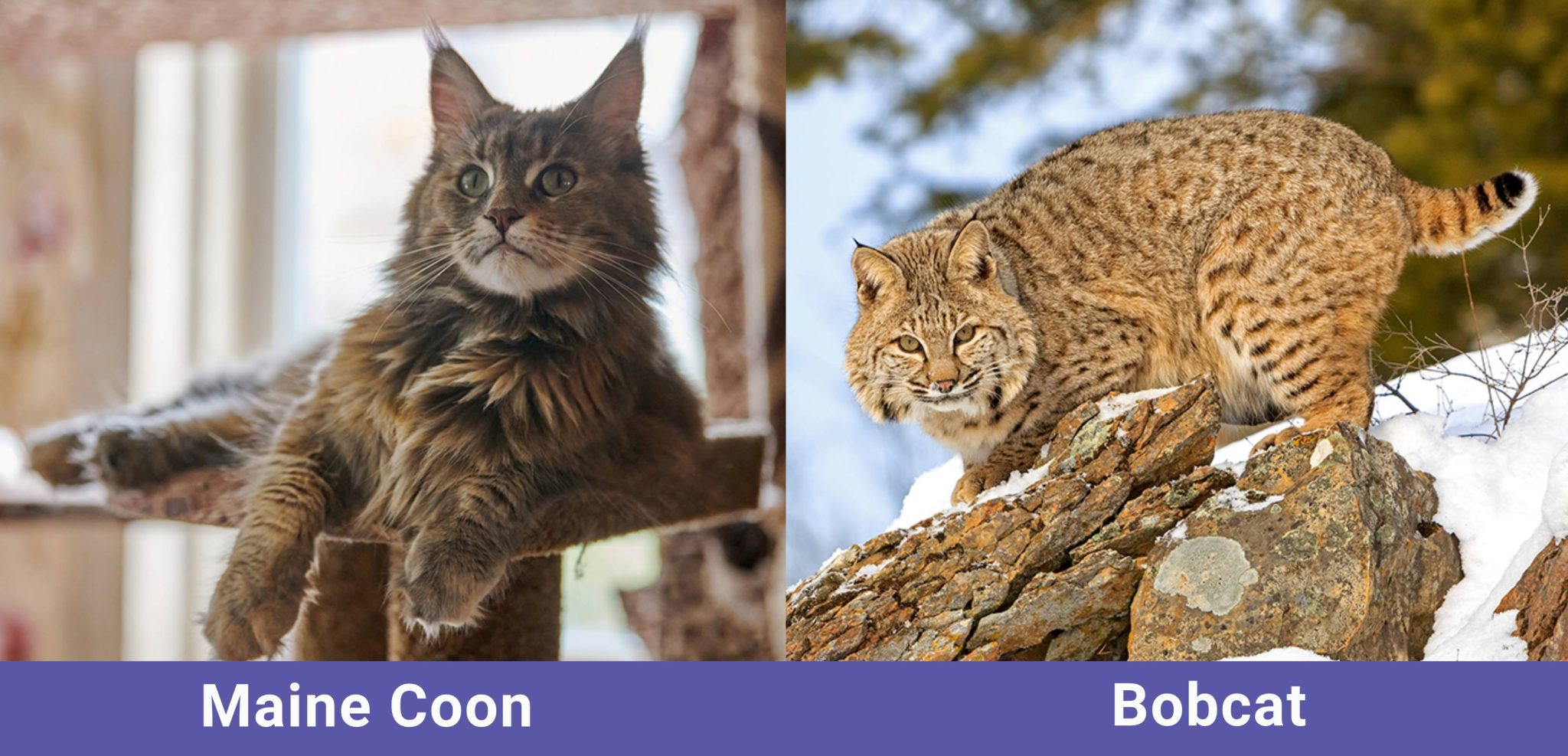
At a Glance
- Average height (adult): 10–16 inches
- Average weight (adult): 8–18 pounds
- Lifespan: 10–13 years
- Exercise level: Moderate
- Grooming needs: Moderate
- Temperament: Friendly, intelligent, loyal
- Family-friendly: Yes
- Other pet-friendly: Often
- Trainability: Easy
- Average height (adult): 15–21 inches
- Average weight (adult): 30–40 pounds
- Lifespan: 10–15 years
- Exercise level: High
- Grooming needs: Low
- Temperament: Active, independent, reserved
- Family-friendly: No
- Other pet-friendly: No
- Trainability: Extremely difficult

Maine Coon Overview
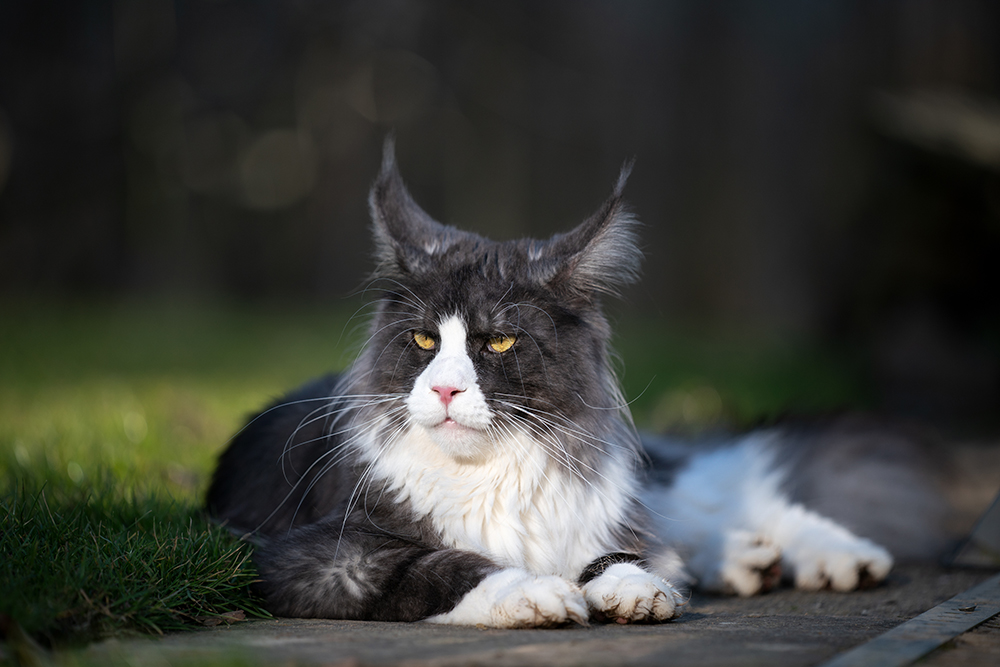
The Maine Coon is the largest domestic cat breed. Although it may have an intimidating size, this cat is a gentle giant. All purebred Maine Coons have medium to long hair that makes them look even bigger than they already are.
Many Maine Coon owners love their cats for their loyalty and affectionate personalities. These cats make devoted companions and have a lot of love to give.
Personality
The Maine Coon’s personality often defies the aloof and independent stereotype placed on cats. They love spending time with their family and typically aren’t shy around strangers. Although they may not want to be at the center of all the action, they still love to be included in their own way, such as observing from their favorite perch.
Maine Coons are also rather easygoing and often get along with other pets. Just note that early socialization is key. Introducing Maine Coons to other pets when they’re kittens will increase the chances that they can peacefully coexist with other animals in the home. However, since they can have a strong prey drive, they may not be able to be fully trusted around small pets, such as hamsters and fish.
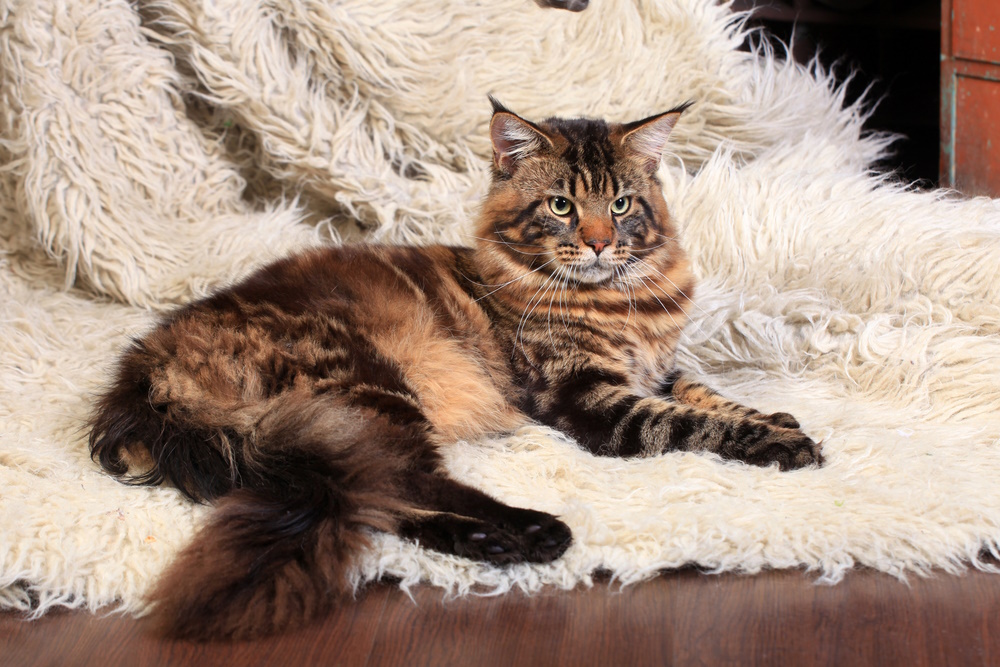
Exercise
Maine Coons don’t need a particularly extensive amount of exercise. These cats often have spurts of energy and then prefer to lounge and nap. Despite their large size, these cats rarely prefer staying at ground level. They love to jump up to high vantage points and observe from their perch. So, they’ll benefit from having a cat tree that can support large cat breeds.
Training
Maine Coons are highly intelligent and love to play. So, they do best with owners who can provide a lot of attention and playtime. Some Maine Coons may even learn tricks and have even been known to play fetch. They’ll most likely enjoy engaging with enrichment toys that activate their prey drive, such as cat wands and puzzles.
Health & Care
Maine Coons have more grooming needs than other cats. Their long coats can get tangled and matted easily, so it’s important to brush several times a week. Although they don’t tend to shed excessively, their long hair can be very noticeable on furniture. Regular brushing can help with reducing cat hair all over the house.
Maine Coons also require baths regularly, and it’s important to bathe them when their coats look and feel greasy. Fortunately, these cats tend to love water, so bath time usually isn’t a problem. Make sure to use a gentle pet shampoo to protect their skin and coat from over-drying.
Maine Coons are generally a healthy breed. However, due to their large size, they can develop joint pain, such as arthritis or hip dysplasia, later on in life. They are also susceptible to hypertrophic cardiomyopathy.
Responsible breeders will screen and provide health records for their Maine Coon kittens. It’s also important to communicate with a veterinarian and regularly screen for hereditary health concerns.
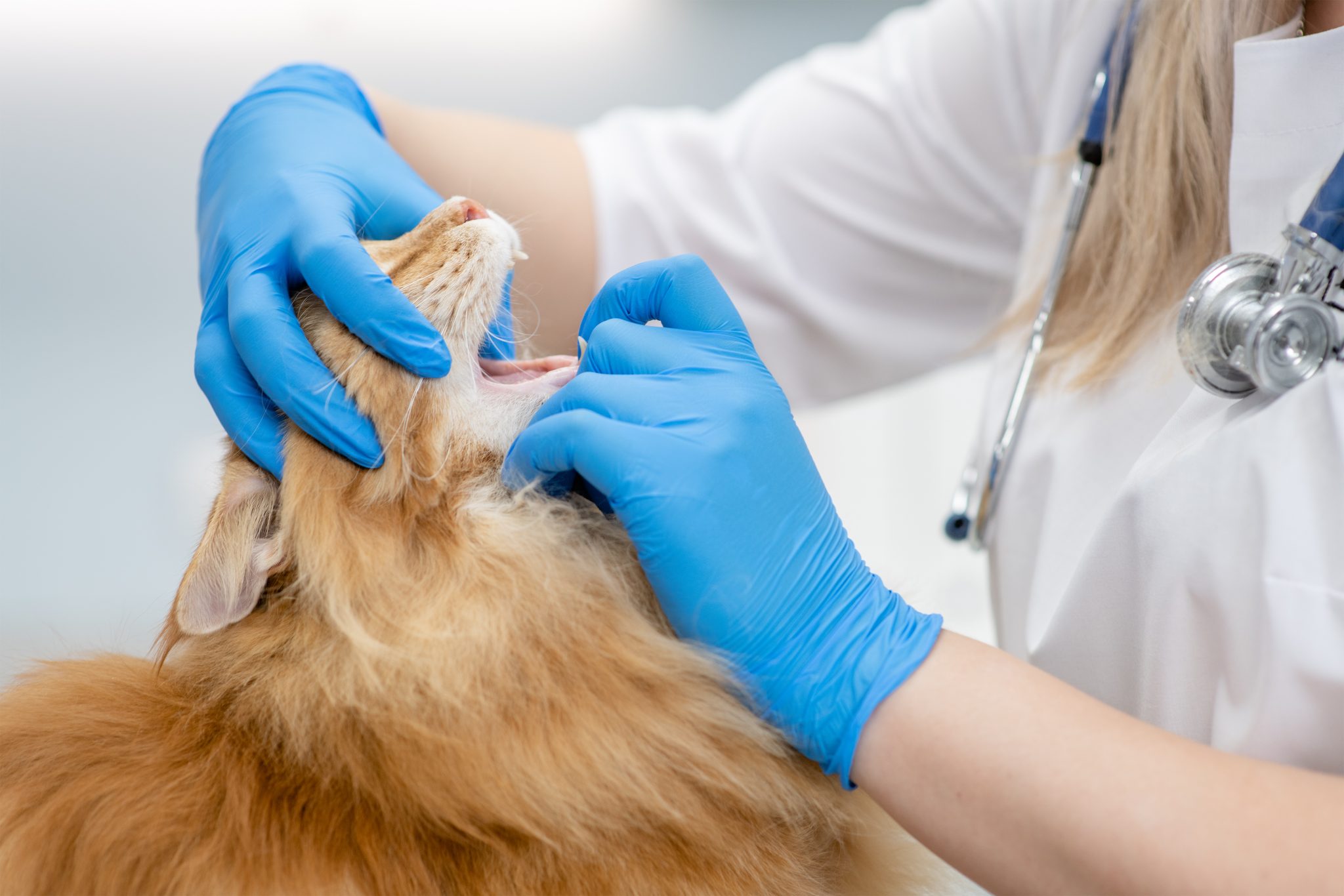
Suitable for:
Maine Coons tend to be great cats for first-time cat owners. They’re easy to train and take to using a litter box rather quickly. They’re also great for families with young children because they often have a lot of patience and affection for them.
Since Maine Coons love to be around their people, they’re not a cat breed for people who are often out of the house. They’ll thrive in homes where they’re not left alone for long hours.

Bobcat Overview
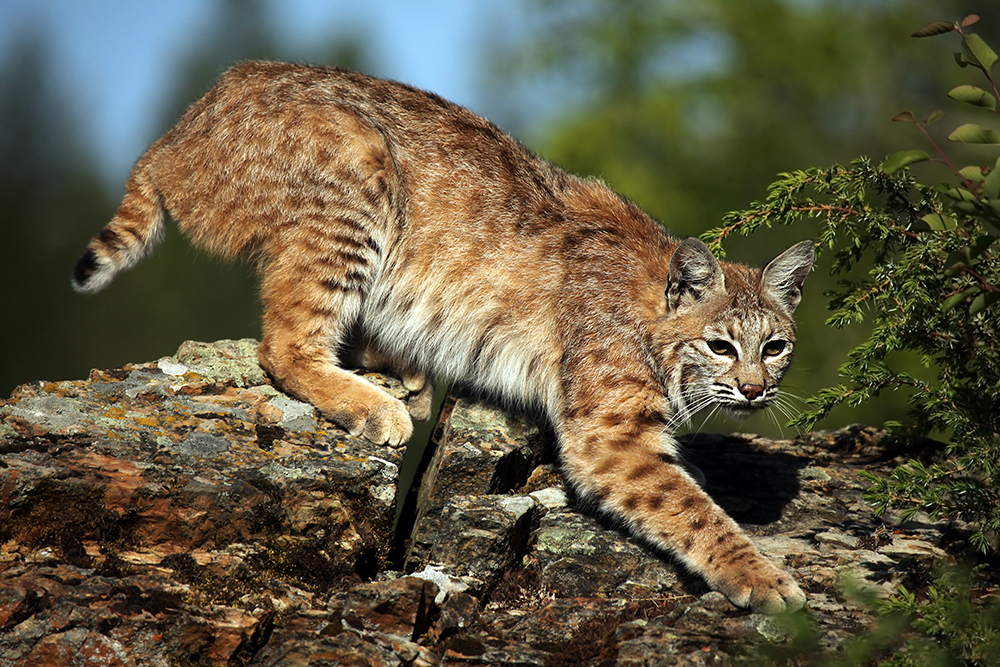
There’s no denying that bobcats are amazing and unique animals, but at the end of the day, they’re not domesticated cats. Bobcats are only allowed as pets in certain states, and many states require owners to have a license.
Bobcat kittens may be adorable, but many end up in animal rescues as adults because it’s difficult for people to train them and live with them in their adulthood.
Personality
Some bobcats can show affection, but they mostly prefer to keep to themselves. In the wild, bobcats are solitary animals and require a lot of space to themselves. They also tend to avoid and hide from humans.
So, it will take a lot of time and investment for bobcats to grow an attachment to their humans, but even then, they probably won’t show affection like domesticated cats. Also, they most likely won’t approach or be comfortable around strangers.
You might’ve seen some cute online videos of bobcats getting along with other animals, but these are very rare encounters. In addition to being territorial, bobcats have a strong prey drive. So, even if you socialize them early with other animals, there’s still a chance that they’ll act on their instincts. In very rare cases, they might get along with dogs and other larger pets, but they can’t be fully trusted with small pets.
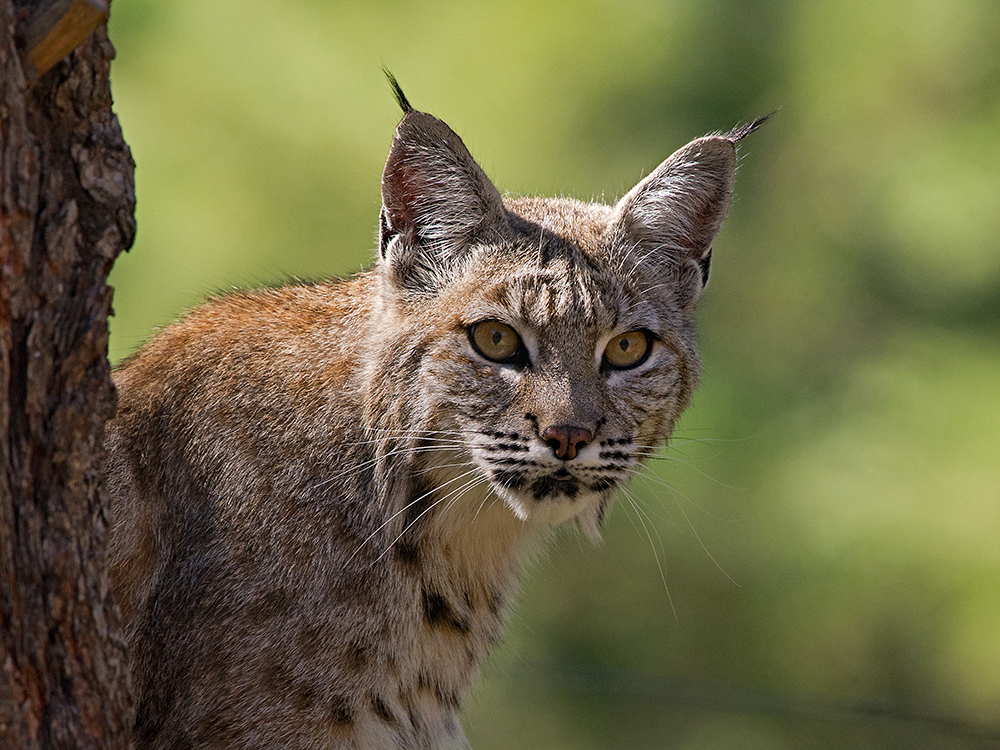
Exercise
Bobcats need a lot of space. In the wild, a male bobcat’s territory can be between 25-30 square miles, while a female’s territory can be around 5 square miles. Therefore, bobcats require a large space both indoors and outdoors.
Most bobcats are active during dawn, dusk, and nighttime and mostly spend their energy roaming around their territory and stalking and hunting prey. They can take on animals larger than their size and can leap to distances as far as 10 feet.
Training
Since bobcats are wild animals, they will never be completely domesticated. Training a bobcat will be much more challenging than training a cat.
Although bobcats may learn to use a litter box, there’s still the risk of urine marking, so bobcat owners have to be prepared to get furniture, carpets, and rugs stained.
Bobcats also have extremely sharp claws and can easily tear up furniture, so be prepared to switch out your furnishings multiple times. Also, declawing bobcats and other animals is extremely discouraged because it can lead to serious health consequences. So, wildlife veterinarians often do not accept any requests for declawing and defanging animals. Even if a bobcat gets declawed, your furniture isn’t safe because it may resort to biting instead.
Health & Care
When owning a bobcat, it’s essential to work with an exotic pet veterinarian who has experience caring for wildcats.
In general, bobcats require a diet of raw meat and specific supplements that help with daily bodily functioning. An experienced veterinarian will be able to provide the correct nutritional needs for a bobcat.
Bobcats don’t require additional grooming from humans as they do this themselves. They also enjoy water and will benefit from having a large tub where they can bathe and play inside.
Bobcats are also susceptible to contracting and spreading most of the same diseases as domesticated cats. Such diseases include bobcat fever, rabies, bordetellosis, and toxoplasmosis.
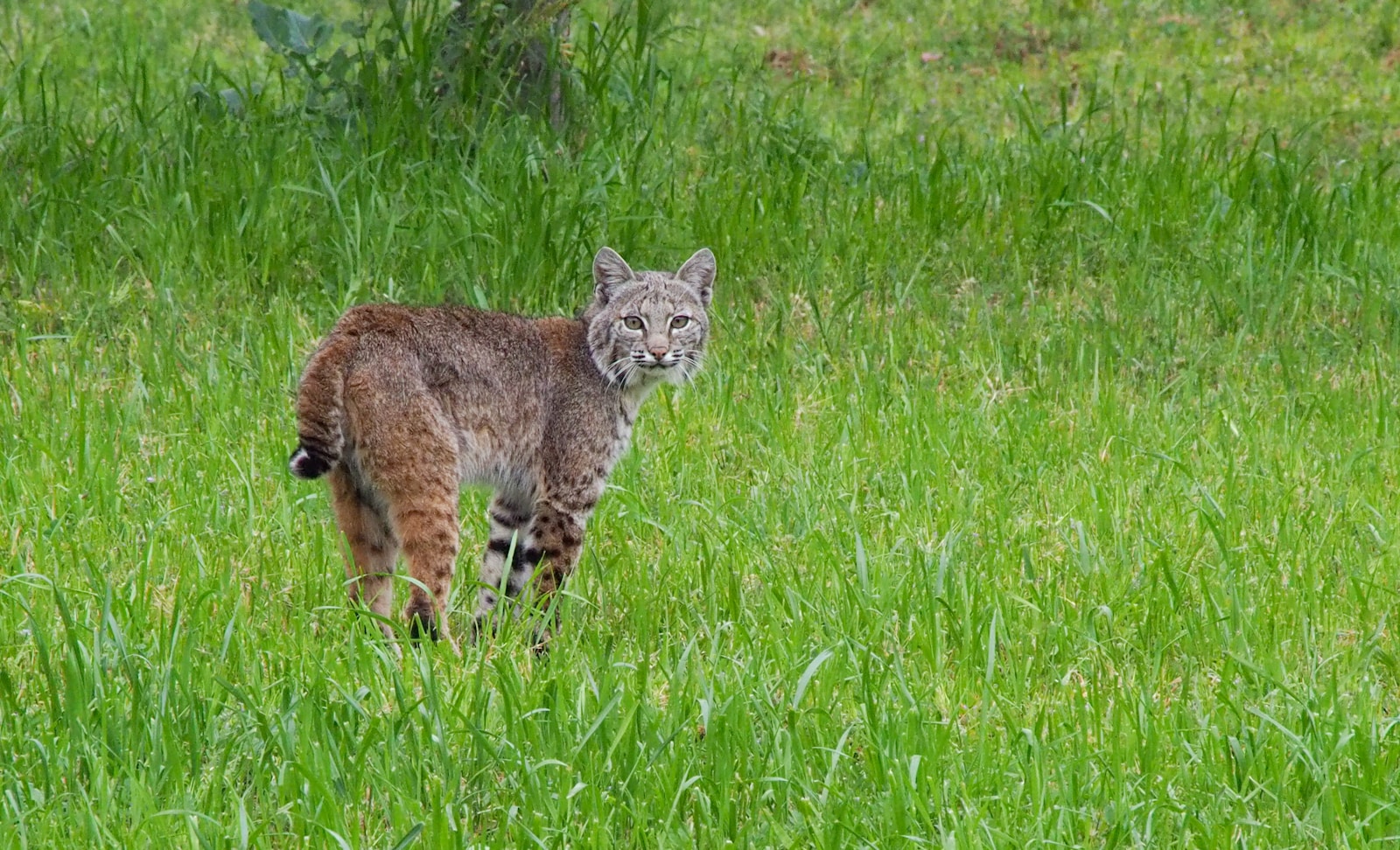
Suitable for:
It’s not impossible to care for a happy and healthy bobcat. However, these animals should be reserved for experienced exotic pet owners. Living with a bobcat means making significant lifestyle changes, such as making modifications to homes and backyards. Your travel plans will also be more restricted because it’ll be difficult to find someone with experience to safely care for a bobcat.
If you are not able to make significant, long-term adjustments to properly accommodate a bobcat, it’s best to move on to other adorable, domesticated pets.
Can a Bobcat Mate with a Domesticated Cat?
Some people may be interested in raising wildcats but are hesitant about being capable of caring for them. So, they may wonder if it’s possible to find a mixed breed of a wildcat and domesticated cat.
When it comes to the case of the bobcat, there is yet to be any conclusive data on the existence of cats with a bobcat parent and domesticated cat parent. Although many claims have risen over the years, many of them have been debunked with genetic testing.
Some people believe that the Pixie-Bob is a crossbreed of a bobcat and a barn cat, and many breeders and cat enthusiasts will acknowledge the Pixie-Bob as a crossbreed. However, there isn’t any scientific data to back up this belief.

Which Breed Is Right for You?
In most cases, the Maine Coon will be the better fit for you. Maine Coons are gentle and patient animals that tend to enjoy being around the company of humans. They also tend to peacefully coexist with other pets.
We don’t want to strictly label bobcats as bad pets because they’re such amazing animals. However, for the sake of our respect for the bobcat, we don’t recommend this cat as a pet for most people. Too many bobcats end up in wildlife rescues because untrained and unprepared owners realize they cannot accommodate their needs.
If you’re interested in having a large or exotic-looking cat in your home, Maine Coons, Pixie-Bobs, and Bengal Cats are all domesticated cats that are more well-suited for living with humans.
Related Reads:
- Lynx vs. Bobcat: The Differences Explained (With Pictures)
- Bobcat vs House Cat: The Differences Explained (With Pictures)
Featured Image Credit: Left -Seregraff, Shutterstock | Right – Ekaterina Bykova, Shutterstock
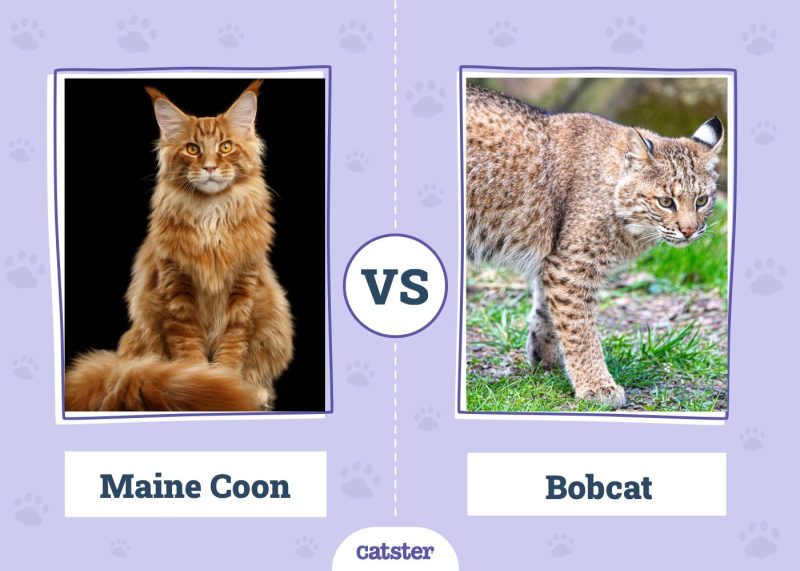

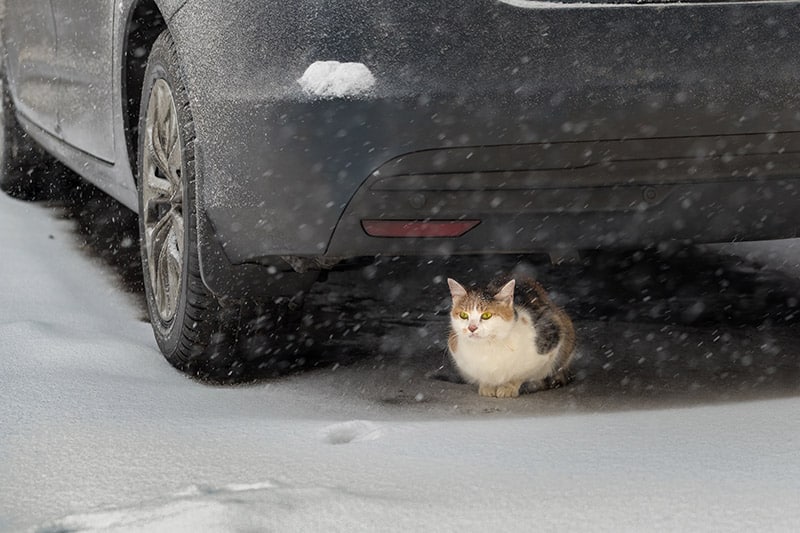
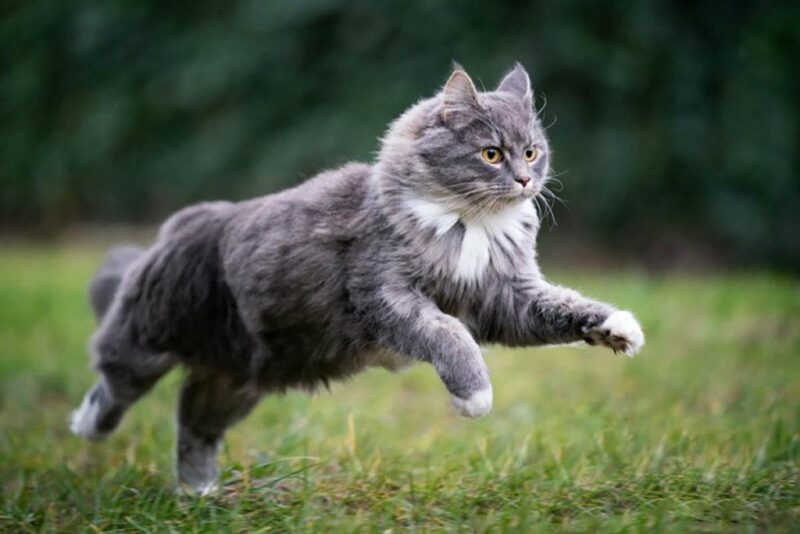
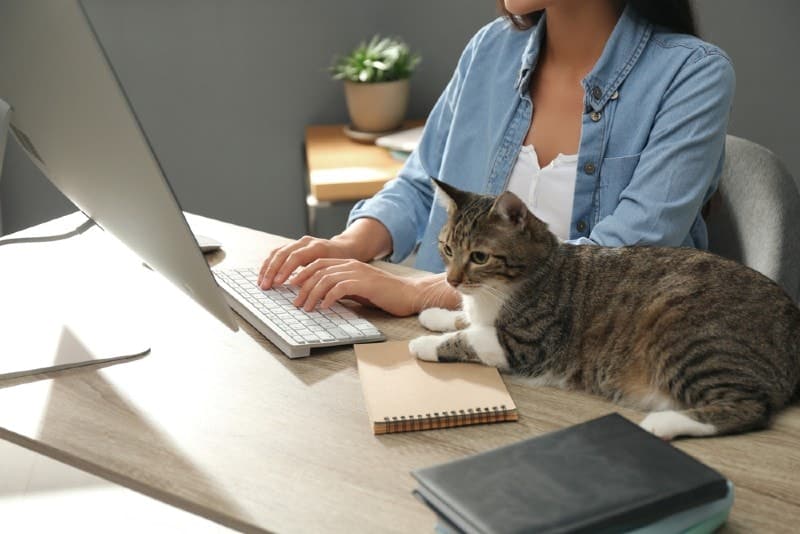
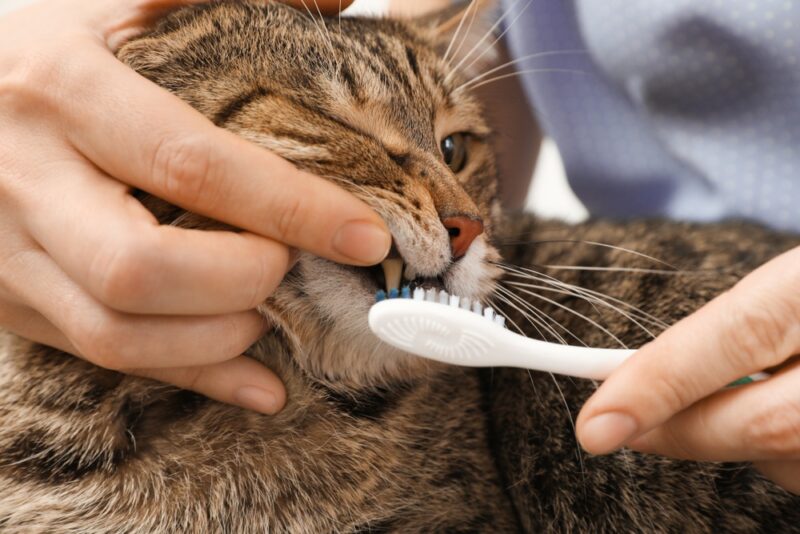
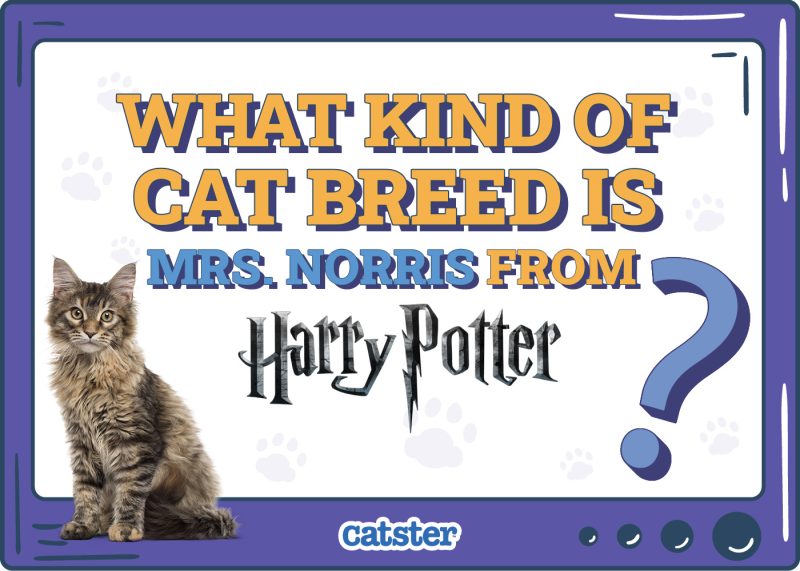
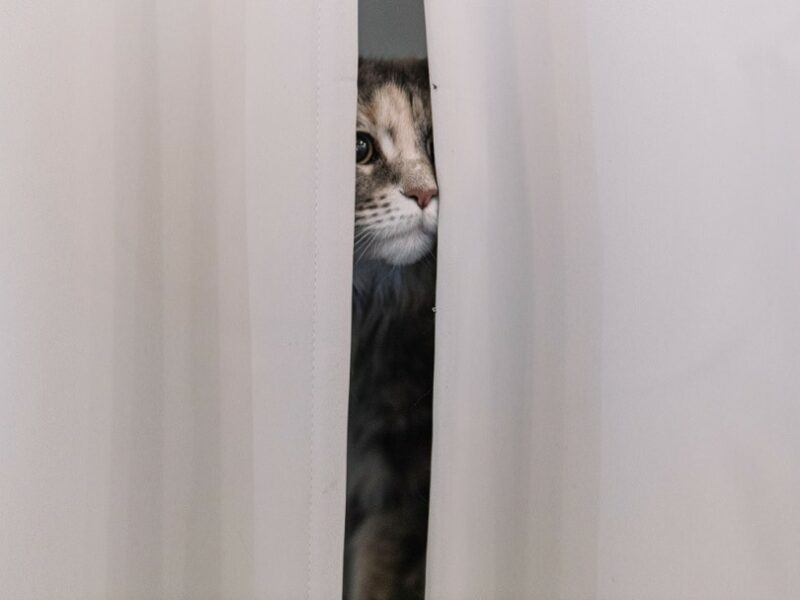
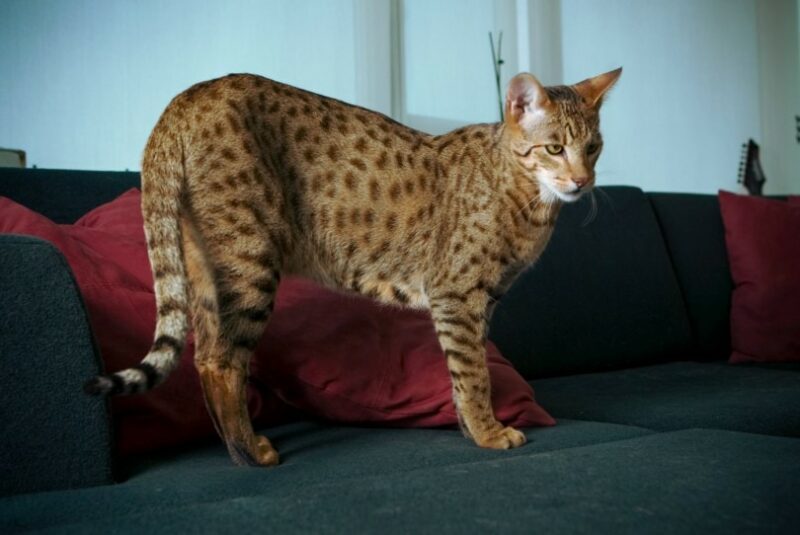
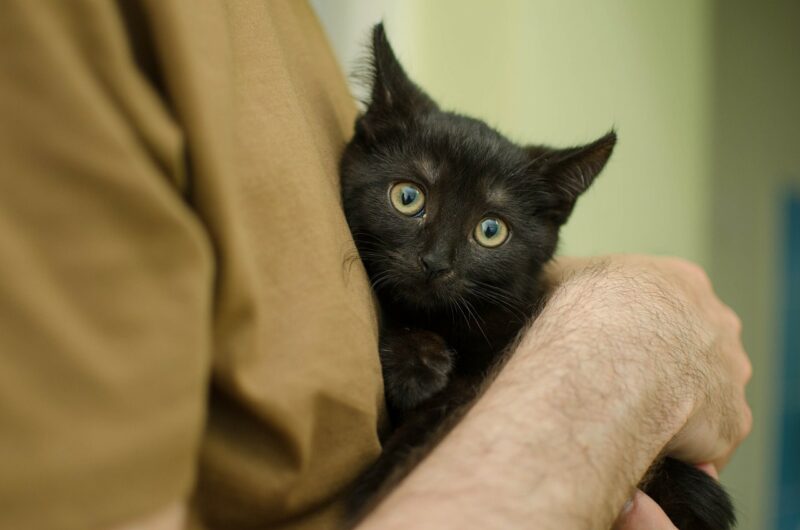
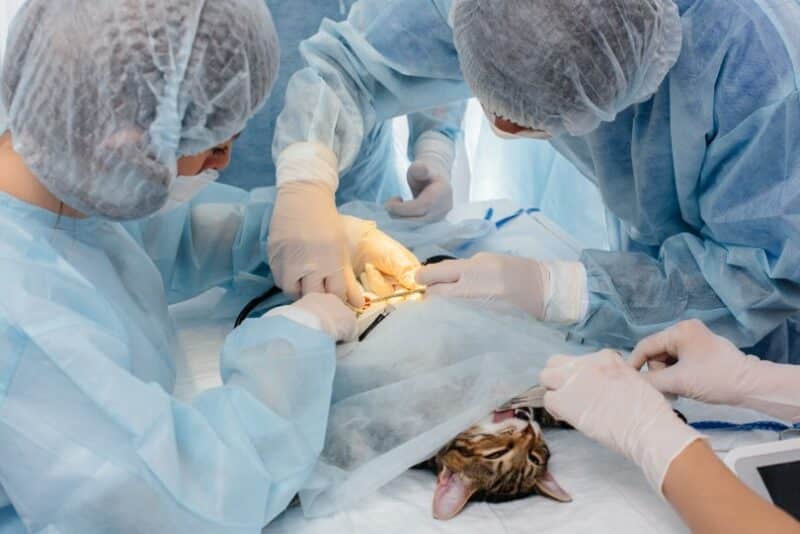
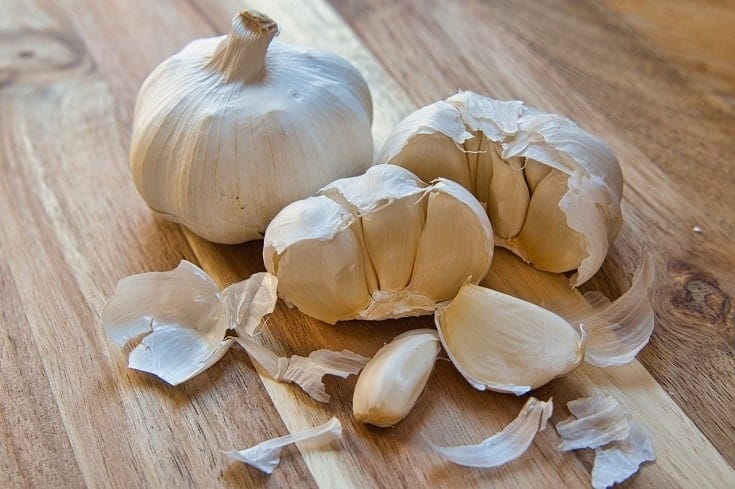
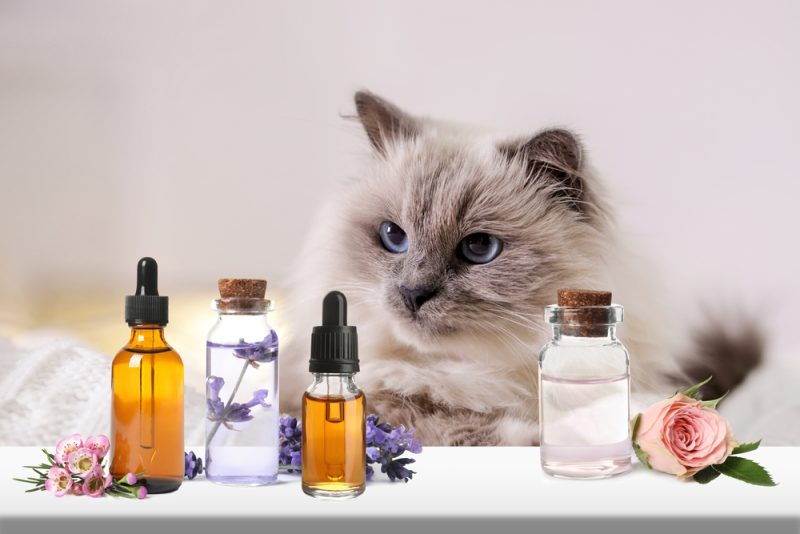
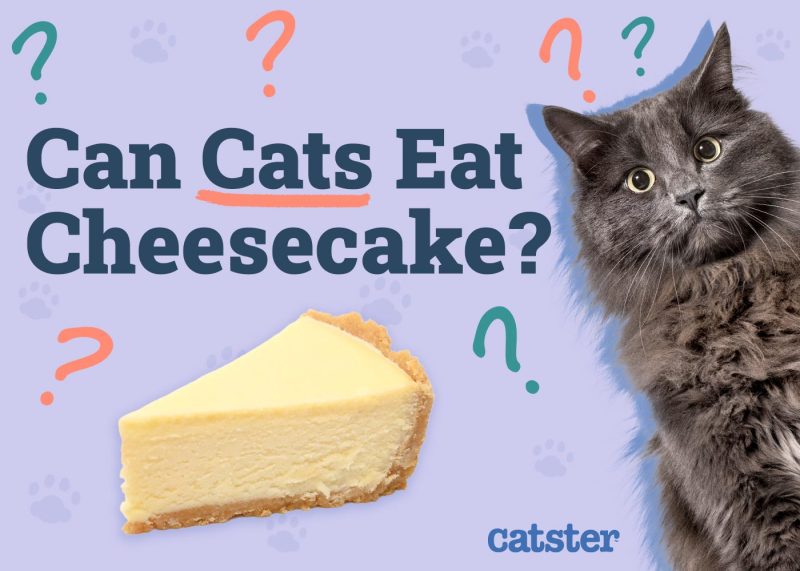
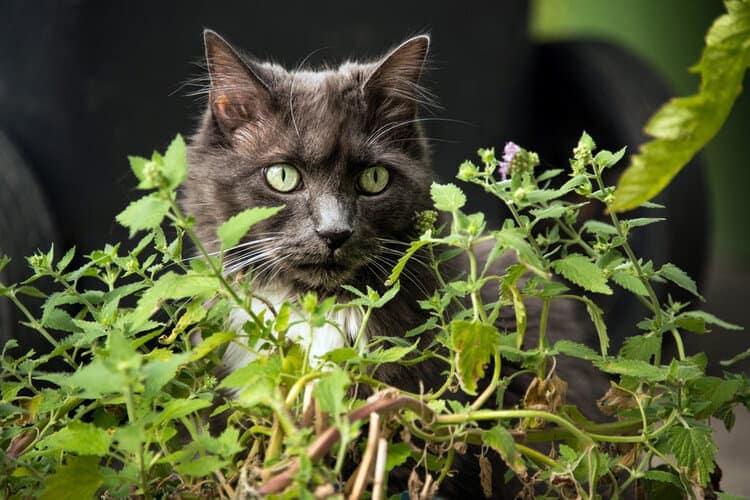
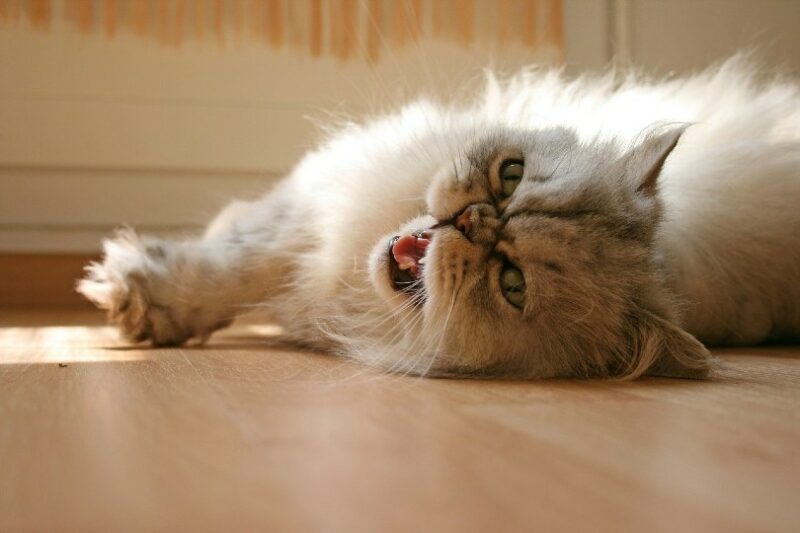
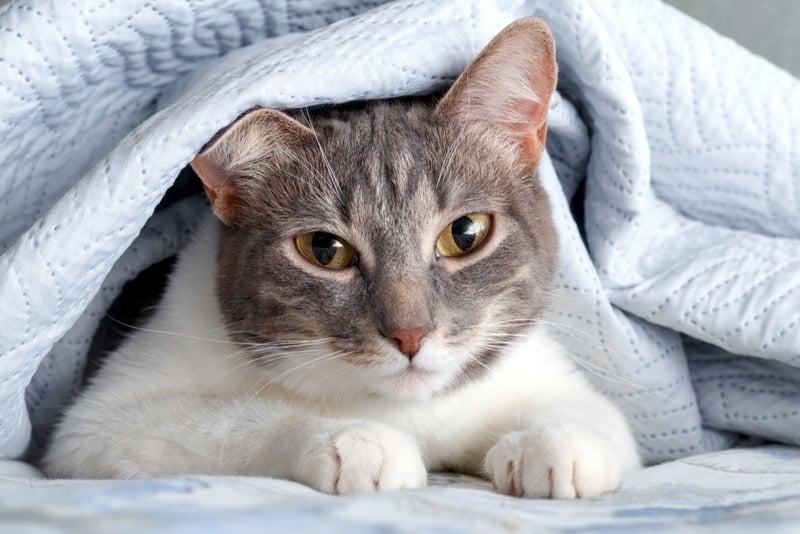
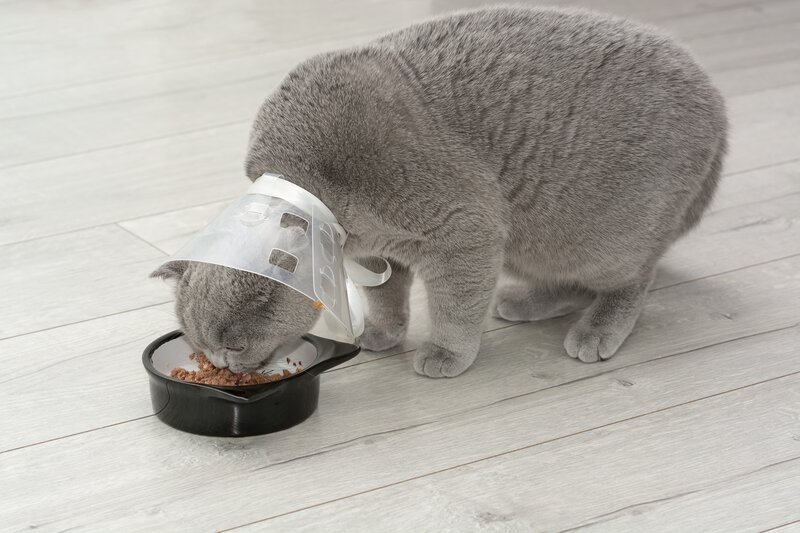



3 Responses
Edit: I meant to say "breed domestic cats with other wildcats."
not
"domestic cats with other housecats"
it is untrue that they have a differing number of chromosomes, both the domestic and bobcat have 38 chromosomes… and if it is possibleto breed domestic cats with other types of housecats, if tigers andlions can mate, and they are ALL PART OF THE SAME SPECIES, why on eart couldant a bobcat breed woth a domestic cat??? make it make sense. i dont see the point in spreading misinformationcat DNA and chromosomes…. itt seems counterproductive for animal advocates and animal scientists to do so
Although domestic cats (Felis catus) and bobcats (Lynx rufus) both have 38 chromosomes, chromosome number alone does not determine whether two animals can interbreed or belong to the same species. What matters is the structure, organization, and genetic content of those chromosomes, as well as evolutionary history and reproductive compatibility. Domestic cats belong to the genus Felis, while bobcats belong to the genus Lynx, and these lineages diverged millions of years ago, leading to significant genetic, behavioral, and physiological differences that prevent successful reproduction. In contrast, lions and tigers can occasionally produce hybrids because they are very closely related species within the same genus (Panthera), despite still being genetically distinct. There is no verified scientific evidence of naturally occurring or viable bobcat–domestic cat hybrids, and claims to the contrary are based on anecdote rather than genetic confirmation. Acknowledging these distinctions is not misinformation, but an accurate reflection of how genetics, speciation, and reproductive biology actually work.